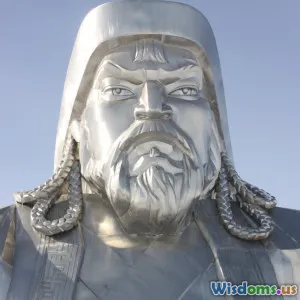
Pioneers of Modern Scientific Thought
7 min read Explore the pivotal figures who shaped modern scientific thought and revolutionized our understanding of the world. (0 Reviews)
Pioneers of Modern Scientific Thought
Introduction
In the quest for knowledge and advancement, few endeavors have shaped humanity as profoundly as scientific inquiry. The revolution sparked during the Renaissance era not only transformed the intellectual landscape but also set the stage for the foundations of modern scientific thought. Figures like Copernicus, Galileo, Newton, Darwin, and Einstein are just a few of the luminaries whose groundbreaking ideas forever altered the trajectory of understanding in the natural world. This article delves into the lives and contributions of these scientific pioneers, offering insights into how their legacies continue to influence contemporary science and our daily lives.
The Dawn of a New Era: Nicolaus Copernicus (1473-1543)
Nicolaus Copernicus is often regarded as the father of modern astronomy. With his seminal work, "De revolutionibus orbium coelestium" (On the Revolutions of the Celestial Spheres) published in 1543, he introduced a revolutionary heliocentric model of the universe, challenging the long-held geocentric view that placed the Earth at the center.
Before Copernicus, the prevailing belief, initiated by Ptolemy, suggested that the sun, moon, and stars revolved around the Earth in complex circular orbits. Copernicus argued that the Earth, along with other planets, revolved around the sun. Most notably, his work laid the groundwork for later astronomers, such as Johannes Kepler, who refined the heliocentric theory through mathematical analysis.
Critical Impact
The implications of Copernican thought were profound:
- It not only displaced humanity from the center of the universe but also heralded a new methodology for scientific inquiry based on observation.
- It initiated a profound schism with the Church, setting the stage for future conflicts between science and religious doctrine.
The Birth of Experimental Science: Galileo Galilei (1564-1642)
Often heralded as the father of modern physics and the scientific method, Galileo Galilei advanced Copernicus's heliocentric theory using meticulous experimentation and observation. His famous observations through a handmade telescope led to multiple groundbreaking discoveries:
- The moons of Jupiter
- The phases of Venus
- The detailed surface of the moon
Galileo’s advocacy for the scientific method—an approach characterized by empirical observation and mathematical analysis—was a fundamental shift from philosophical speculation.
Advocating for Inquiry
Galileo famously said, “All truths are easy to understand once they are discovered; the point is to discover them.” He faced immense opposition from the Catholic Church due to his support of heliocentrism, eventually leading to imprisonment. Nonetheless, his methods of inquiry served as a crucial model for future scientists, emphasizing that observation and evidence must be the markers of scientific discourse.
The Unified Laws of Motion: Sir Isaac Newton (1643-1727)
Sir Isaac Newton's comprehensive work "Philosophiæ Naturalis Principia Mathematica" (Mathematical Principles of Natural Philosophy) proposed the law of universal gravitation and the three laws of motion, fundamentally changing physics and mathematics. Newton's combination of theories not only explained celestial movements but also terrestrial phenomena in a unified framework.
One of his crucial contributions, calculus, paved the way for advanced scientific applications.
Far-reaching Effects
- Laws of Motion: Newton articulated how objects move both in rest and in motion, providing a foundation that would lead to advancements in engineering and technology.
- Calculus as a Tool: Newton's introduction of calculus laid the groundwork for later advancements in physics, enabling scientists to describe motion and change quantitatively.
Darwin's Revolution: Charles Darwin (1809-1882)
Charles Darwin’s work on evolution stands as one of the pivotal shifts in scientific thought. His articulated theory of natural selection provides a comprehensive explanation for the diversity of life on Earth. The publication of "On the Origin of Species" in 1859 not only transformed biology but also sparked intense debates about human origins and the implications of evolution on humanity.
The Legacy of Biological Understanding
- Darwin's theory challenged traditional views held by society and religion, creating rifts yet fostering a new understanding of human existence and relationship to the natural world.
- His concept of natural selection remains a fundamental tenet of modern biology and genetics.
The Theory of Relativity: Albert Einstein (1879-1955)
Albert Einstein revolutionized the physics concepts of space, time, and energy through his theory of relativity, particularly the infamous equation E=mc². His theory challenged the Newtonian framework, introducing concepts such as the curvature of space-time and the interrelation of matter and energy.
Einstein’s Lasting Impact
- His theories enabled advancements in fields such as cosmology and quantum physics, offering insights into black holes, the nature of galaxies, and the very framework of the universe itself.
- Einstein’s thought processes reflect the scientific spirit: **“Imagination is more important than knowledge. For knowledge is limited, whereas imagination embraces the entire world, stimulating progress, giving birth to evolution.
History & Great Figures
Rate the Post
User Reviews
Popular Posts




















